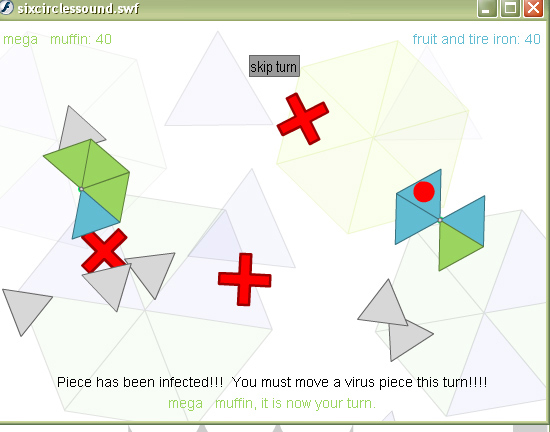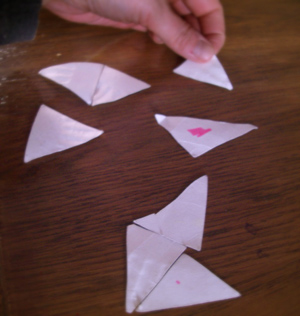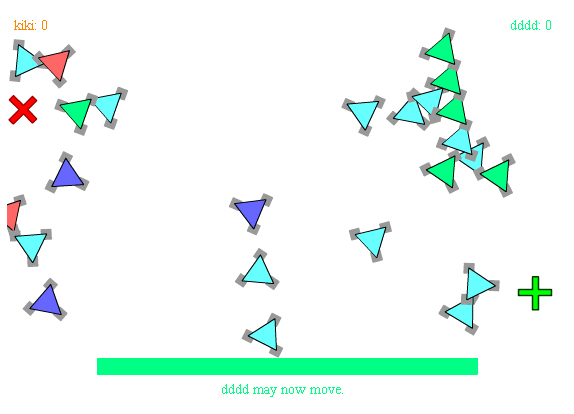



[six.circles]
Software, controller, computer
dimensions variable
2004
[six.circles] is a 2 player conceptual game exploring cooperation and competition through the construction of simple geometic objects.
The goal is to be the first to construct a series of 6 circle forms while fending off viruses seeking to infect each piece. Players are obliged to periodically attach infected pieces to their chain of forms and have to negotiate and sacrifice to cooperatively prevent the spread of the disease, all while attempting to win the game. While one player generally wins, the structure of the game explores themes of cooperation, interdependence and conflicting goals in play.
If the player finds the case that all of the pieces of a given chain are infected, the infection changes with each turn to a full blown diseased piece which can no longer be assimilated into a circle. If an entire chain is diseased, it spawns new disease pieces with each turn.
The game is inspired by the Six Circles mathematical theorem which states: within any triangle, any chain of circles that touch both their circular neighbors as well as two of the sides of the triangle is limited to a maximum of six circles. This dry geometric law subtly suggests a mathematical proof supporting the need for balance in any given community. Any large circle leaves less room for the remaining circles, suggesting sustainability. This theorem provides an approach towards collaboration within a community.
Originally commissioned by the Wooloo (link to the site) organization for the show ‘Thank You’, an HIV awareness project raising funds for the creation of an HIV Education Center in the township of Khayelitsha, South Africa via online interactions with the art work.
Exhibitions
- “Thank You” show, Artists Space, New York, New York and Khayelitsha, South Africa, December 2004
- Third Place Gallery Juried Game Art Festival, Sweden, 2004
Additional Credits
- Special thanks to Ruth Catlow & Joline Blais for their indispensable input
- Technical Engineering + Additional Design: Christopher Egert
- Game server hosting generously provided by the Rochester Institute of Technology’s Collaborative Multimedia Experience group Information Technology Department
- Many thanks to Jon Ippolito, Joline Blais, and the University of Maine’s Code & Creativity v3.0 : “Games: Making and Unmaking the World”